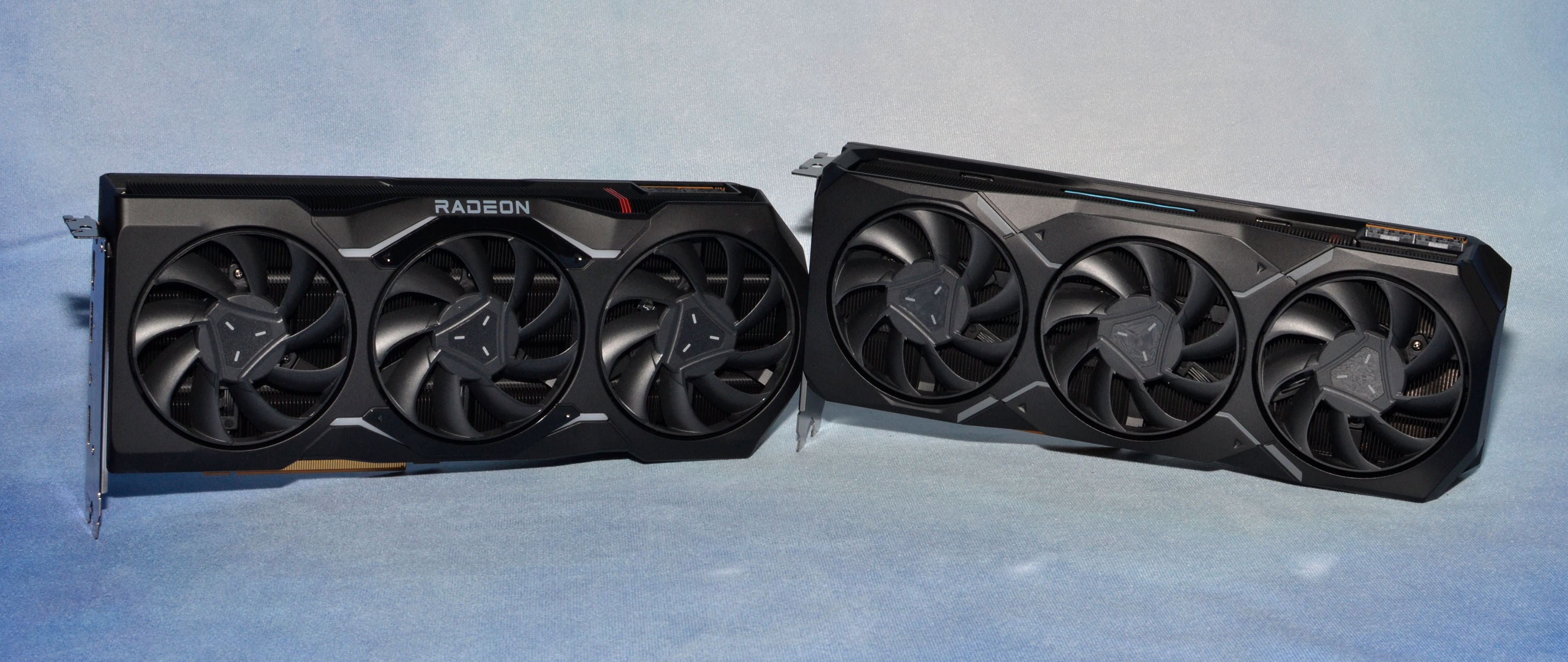Why you can trust Tom's Hardware
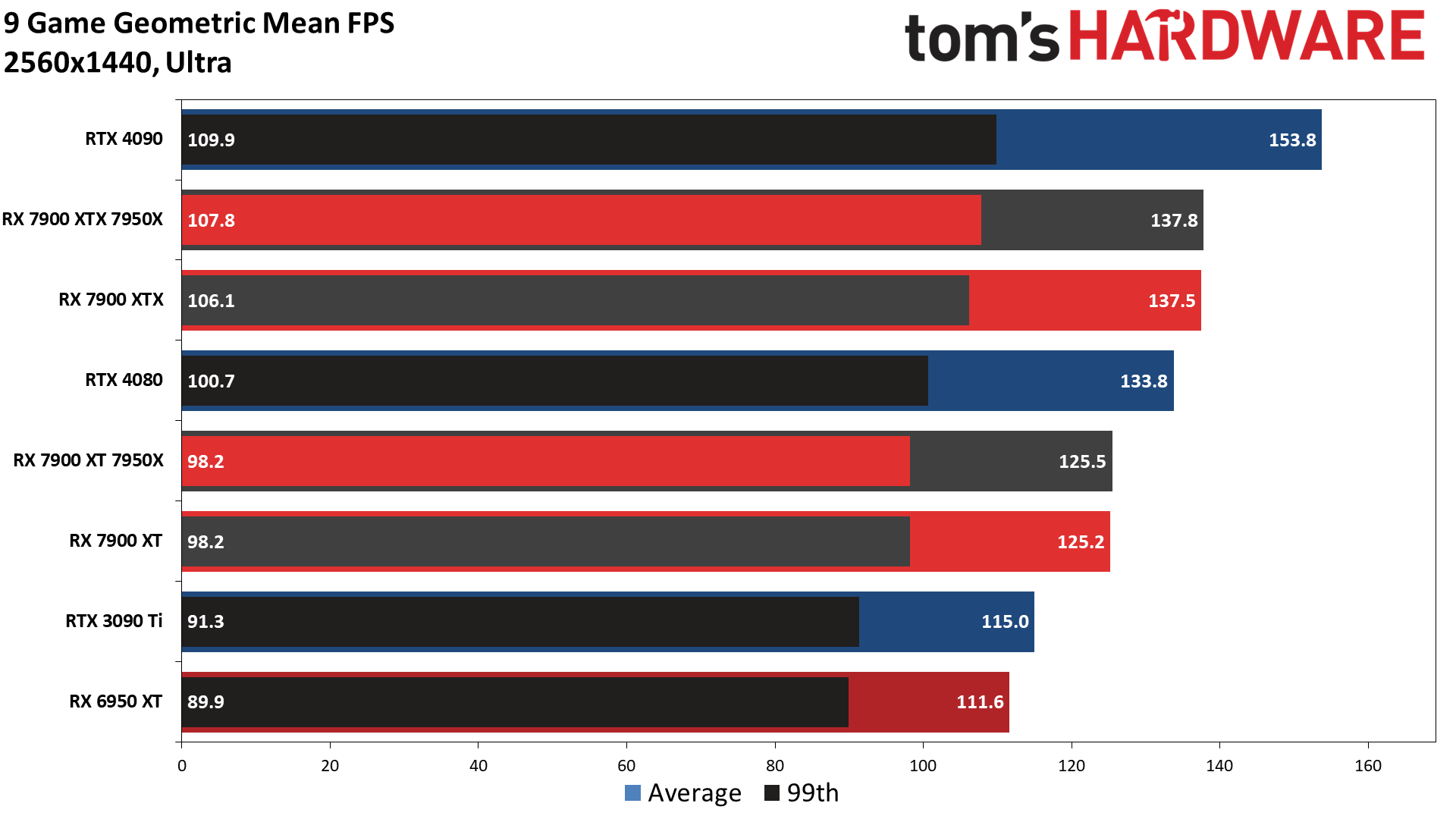
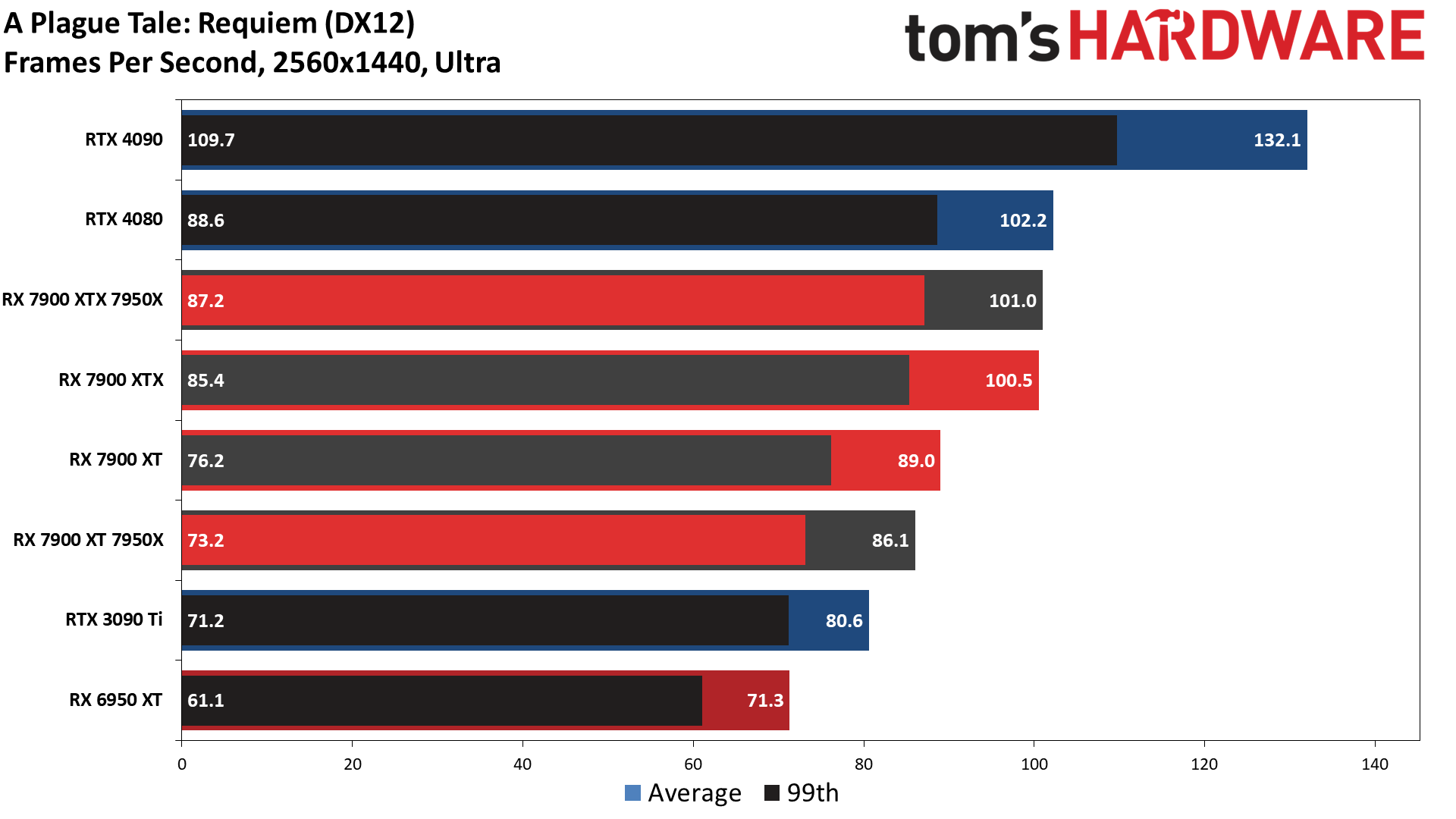
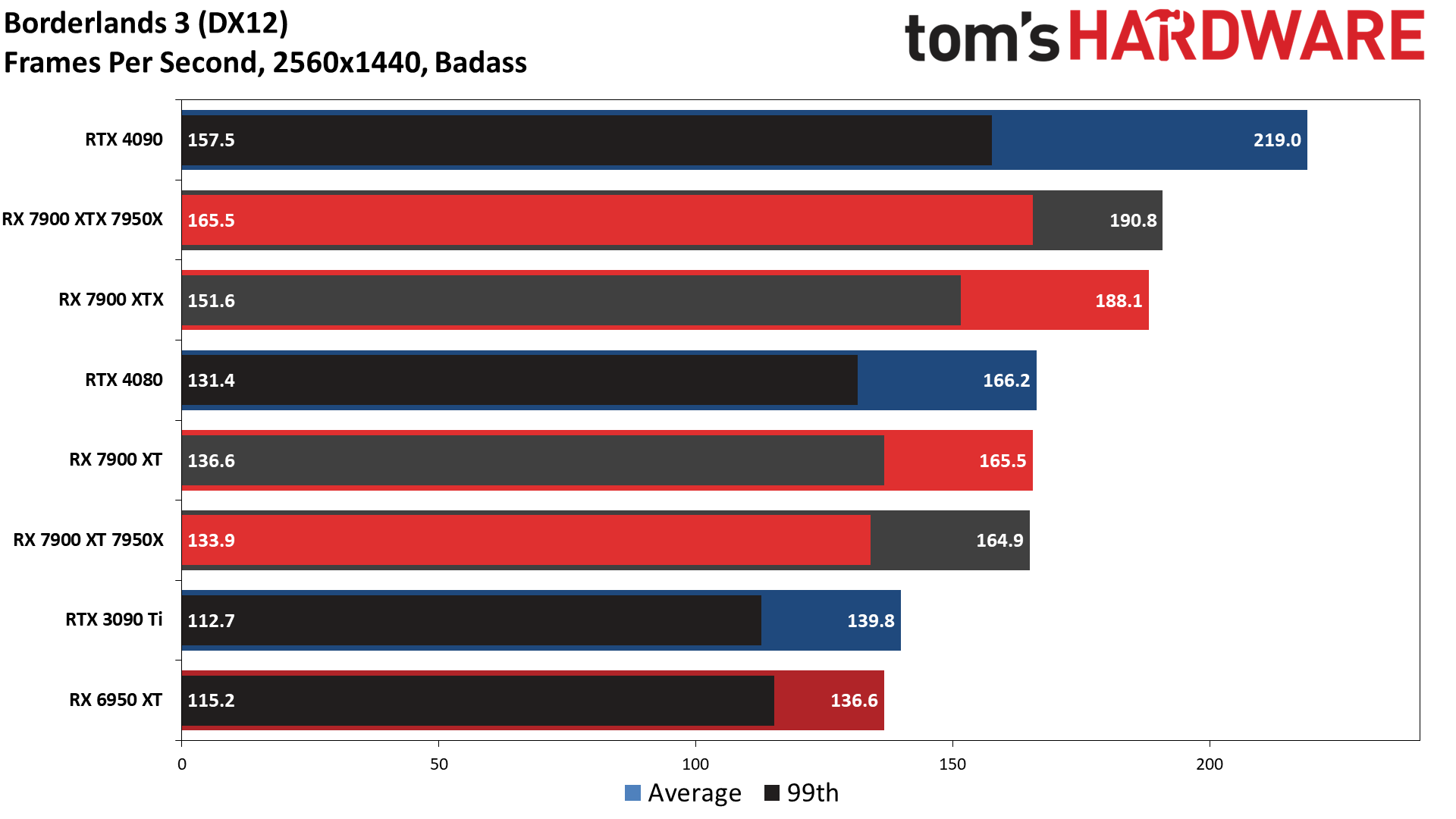
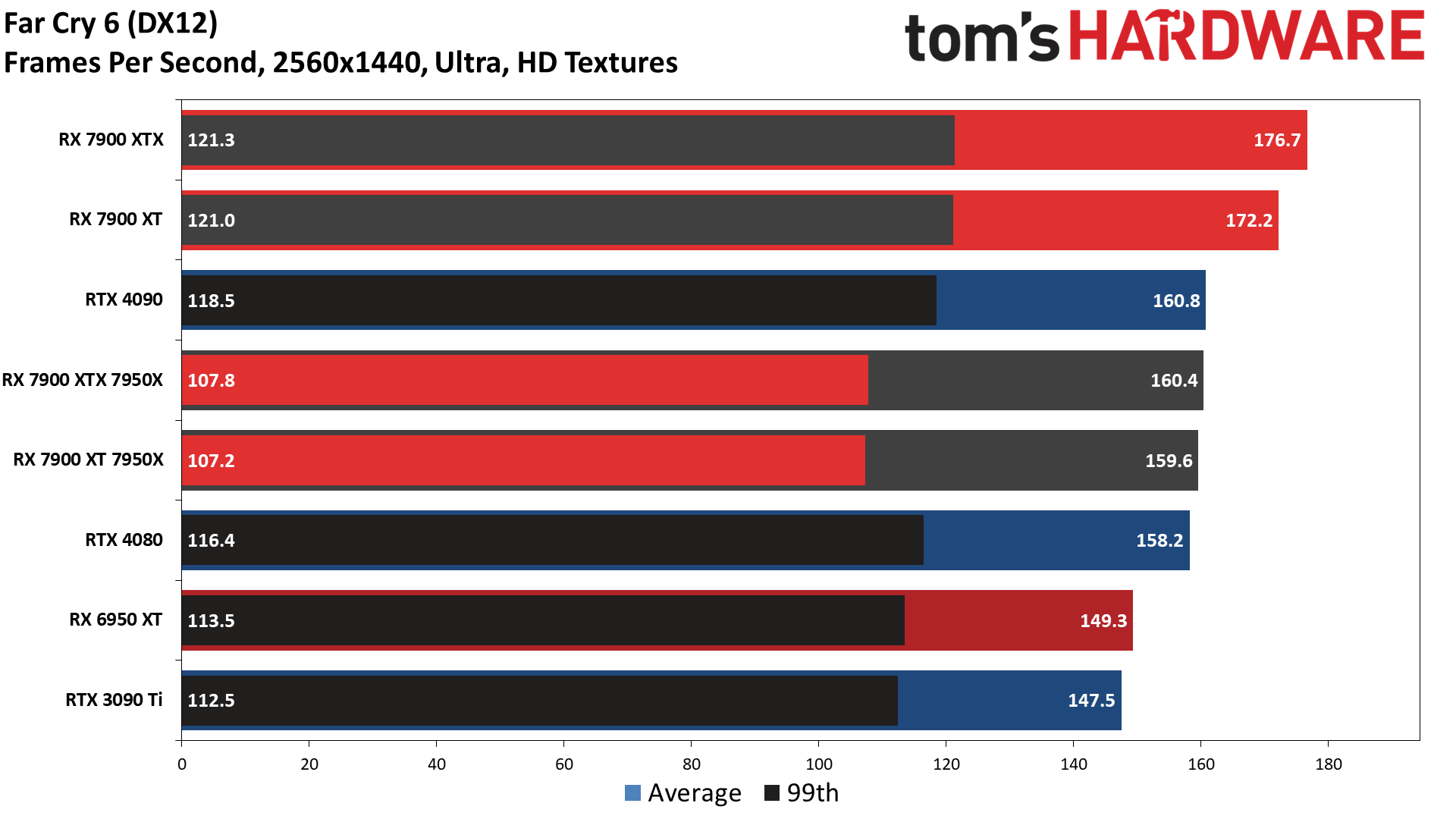
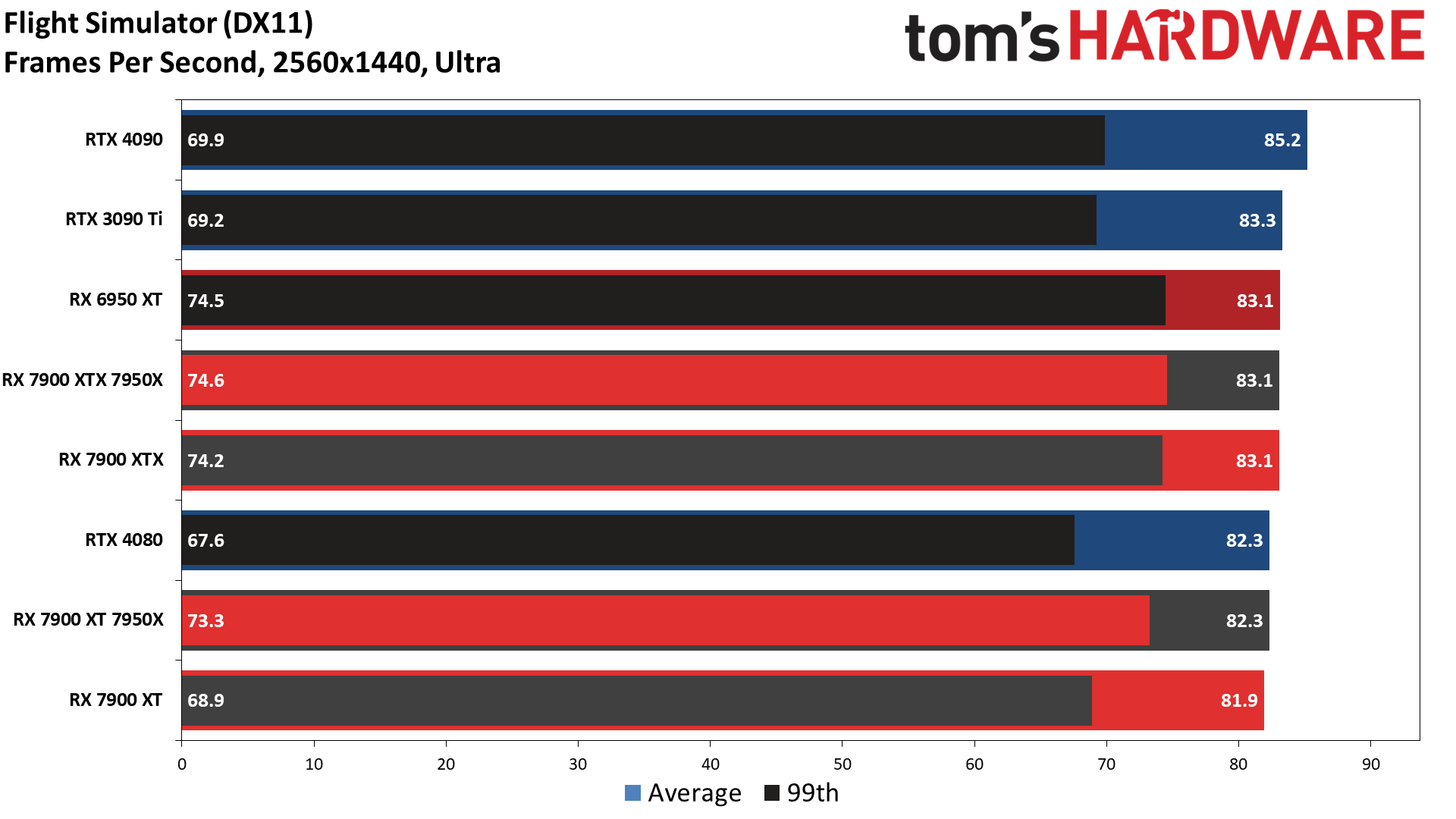
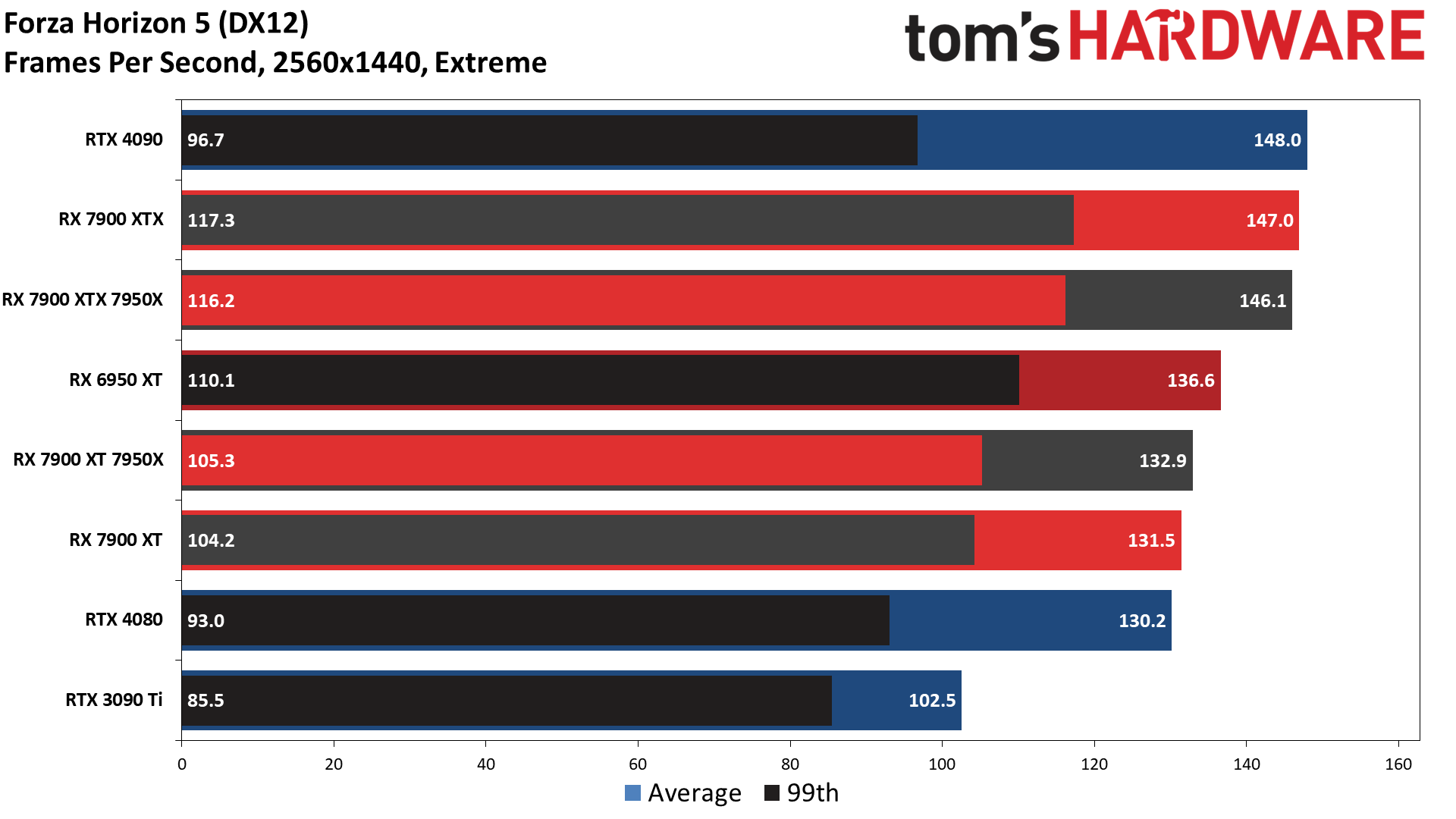
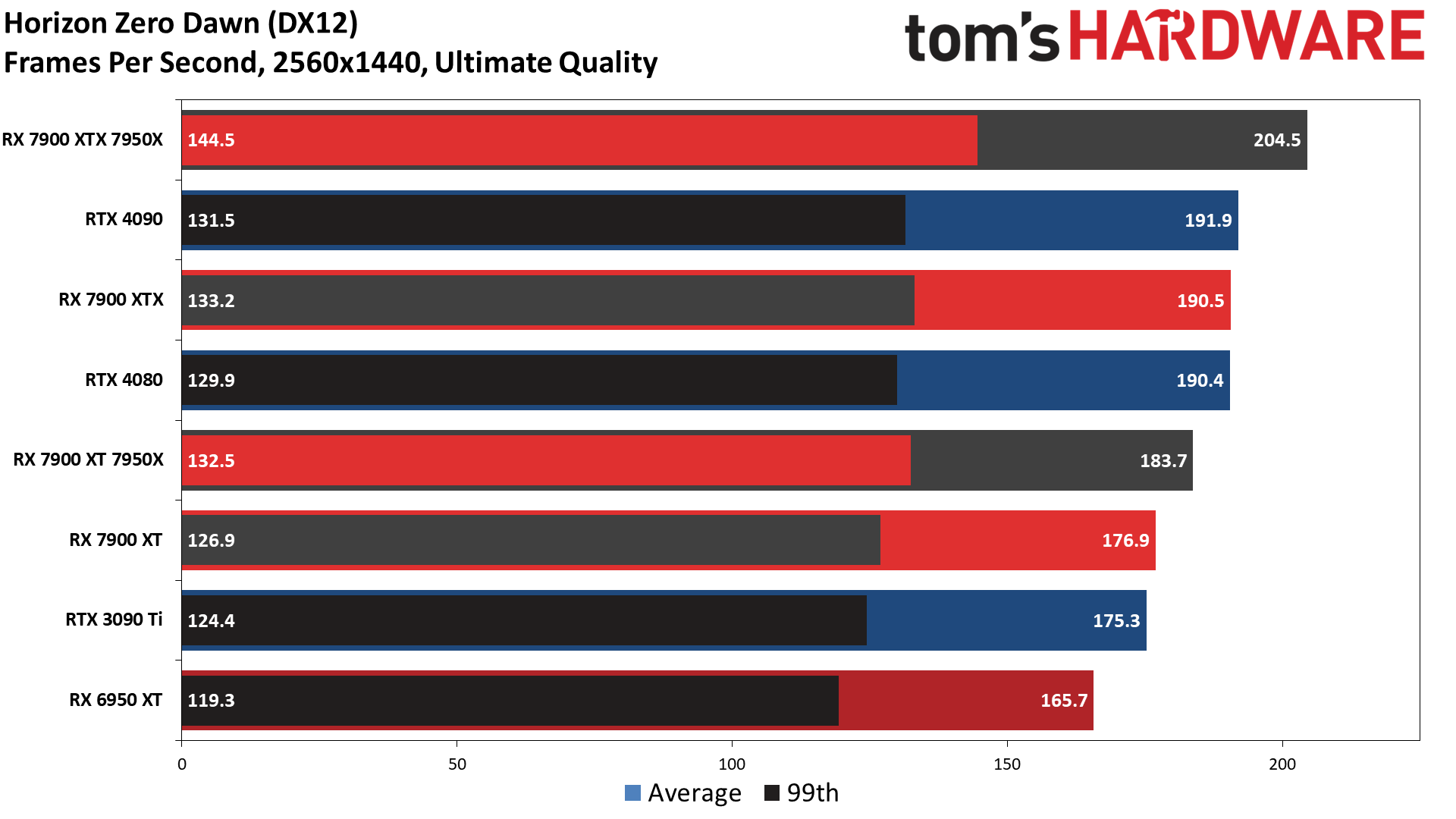
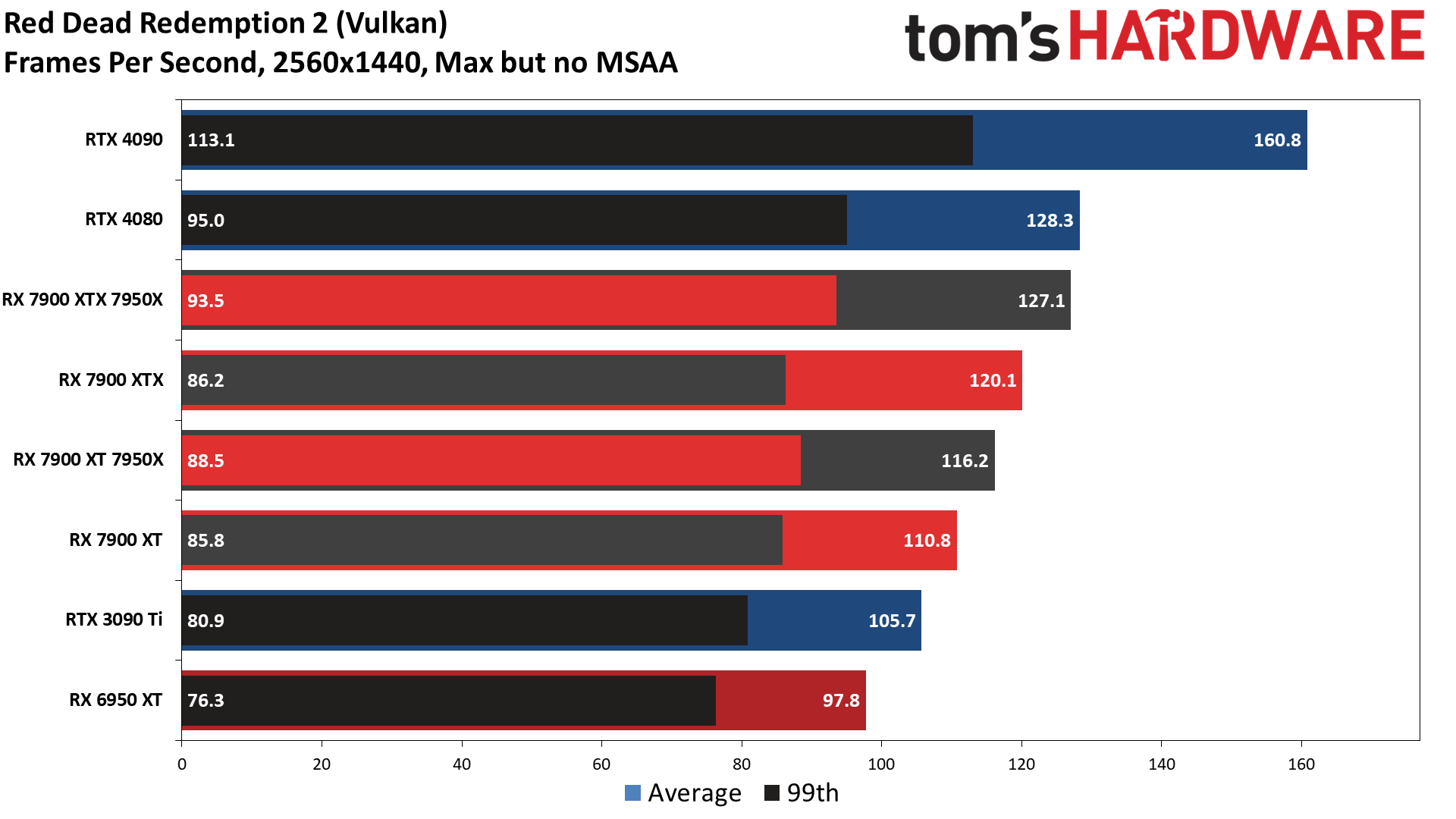
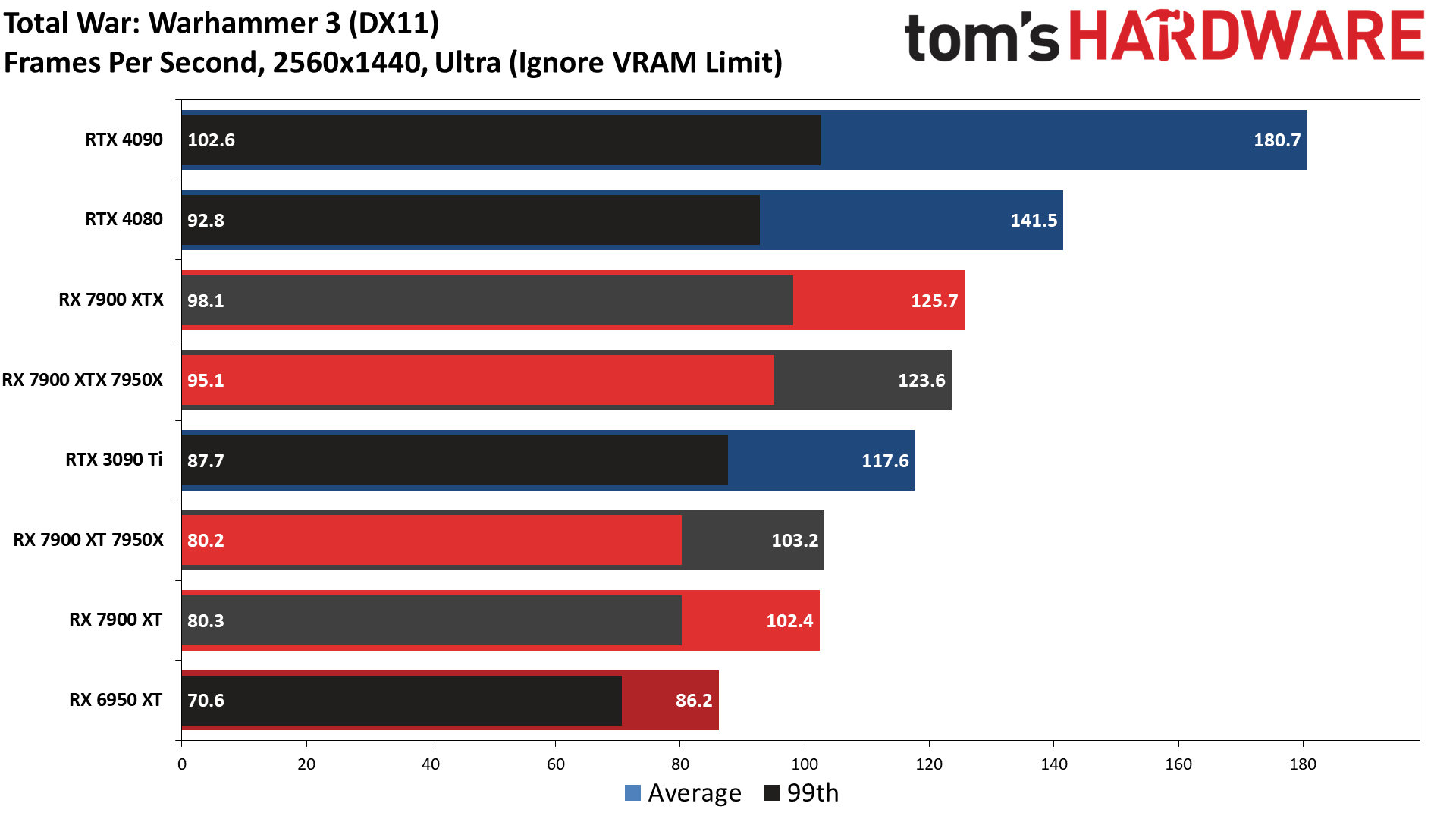
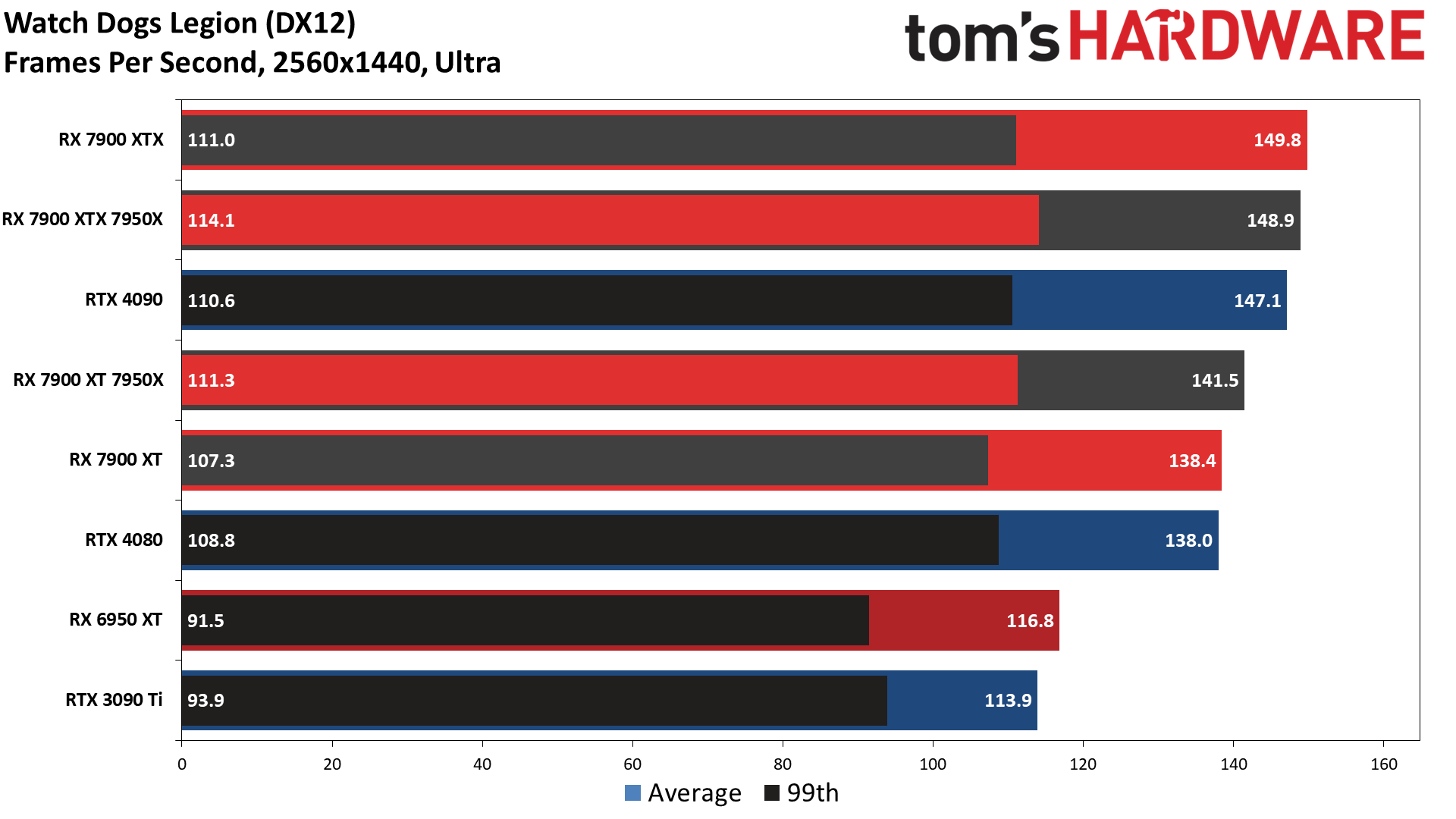
A funny thing happens when we drop to 1440p testing: Things become more CPU limited, and the fastest cards are no longer able to strut their stuff. The 7900 XTX is now only 10% faster than the 7900 XT in rasterization performance, and there are a couple of games where it's basically a tie (Far Cy 6 and Flight Simulator).
The XTX hangs onto a scant 3% lead over the RTX 4080, while the 7900 XT is 6% slower overall. The 7900 XT is also only 12% faster than the previous generation RX 6950 XT, which again highlights the difficulty of the value proposition. The 6950 XT has been selling for under $800 — the ASRock RX 6950 XT Formula is right at that price from Newegg.
Basically, the holiday shopping season is here, and it's done weird things to supply yet again. For the same price, the 7900 XT would be an easy pick over the 6950, but when it's $100 extra, it's not quite as compelling. It will be interesting to see how pricing shakes out over the next few weeks.
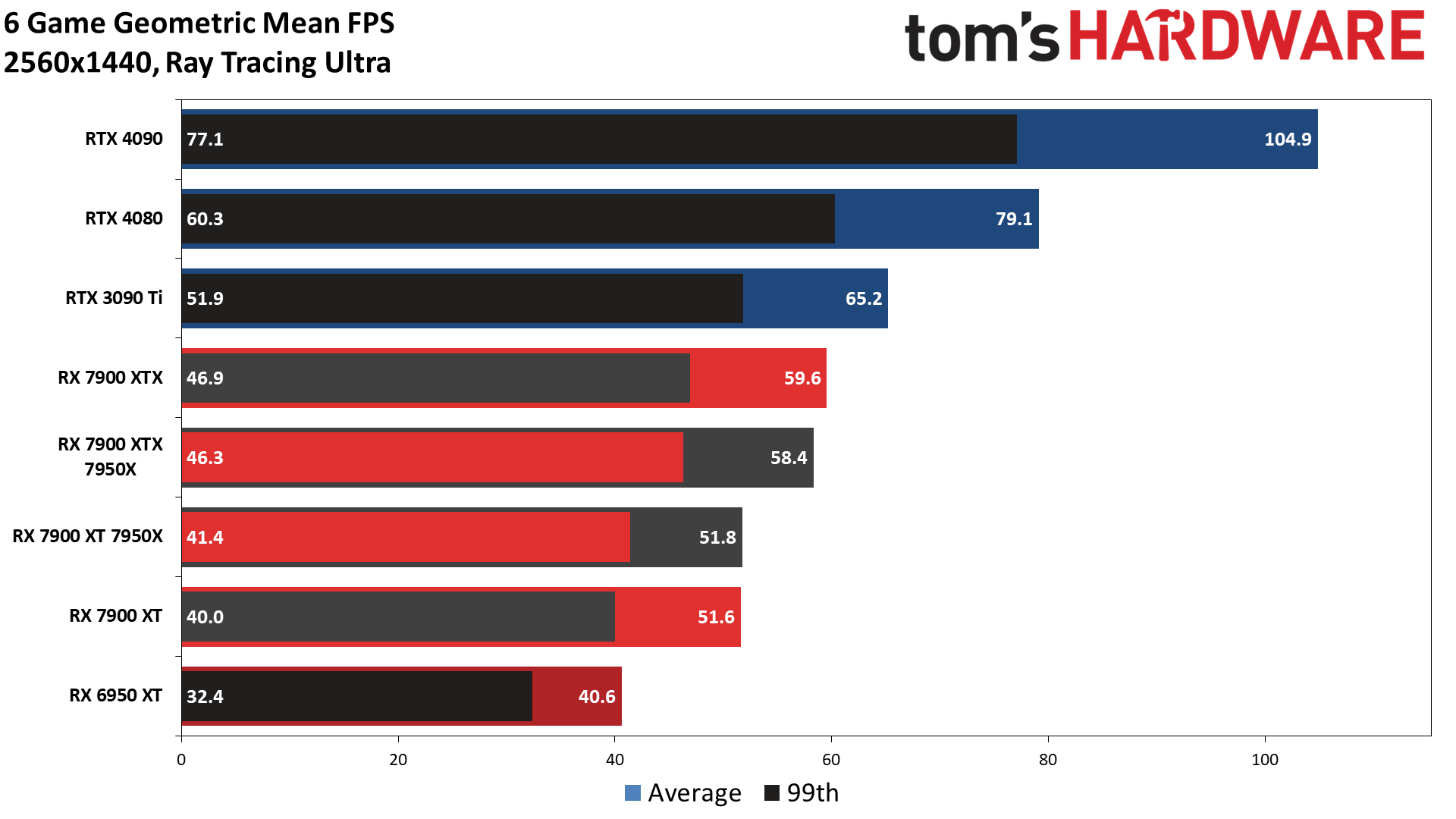
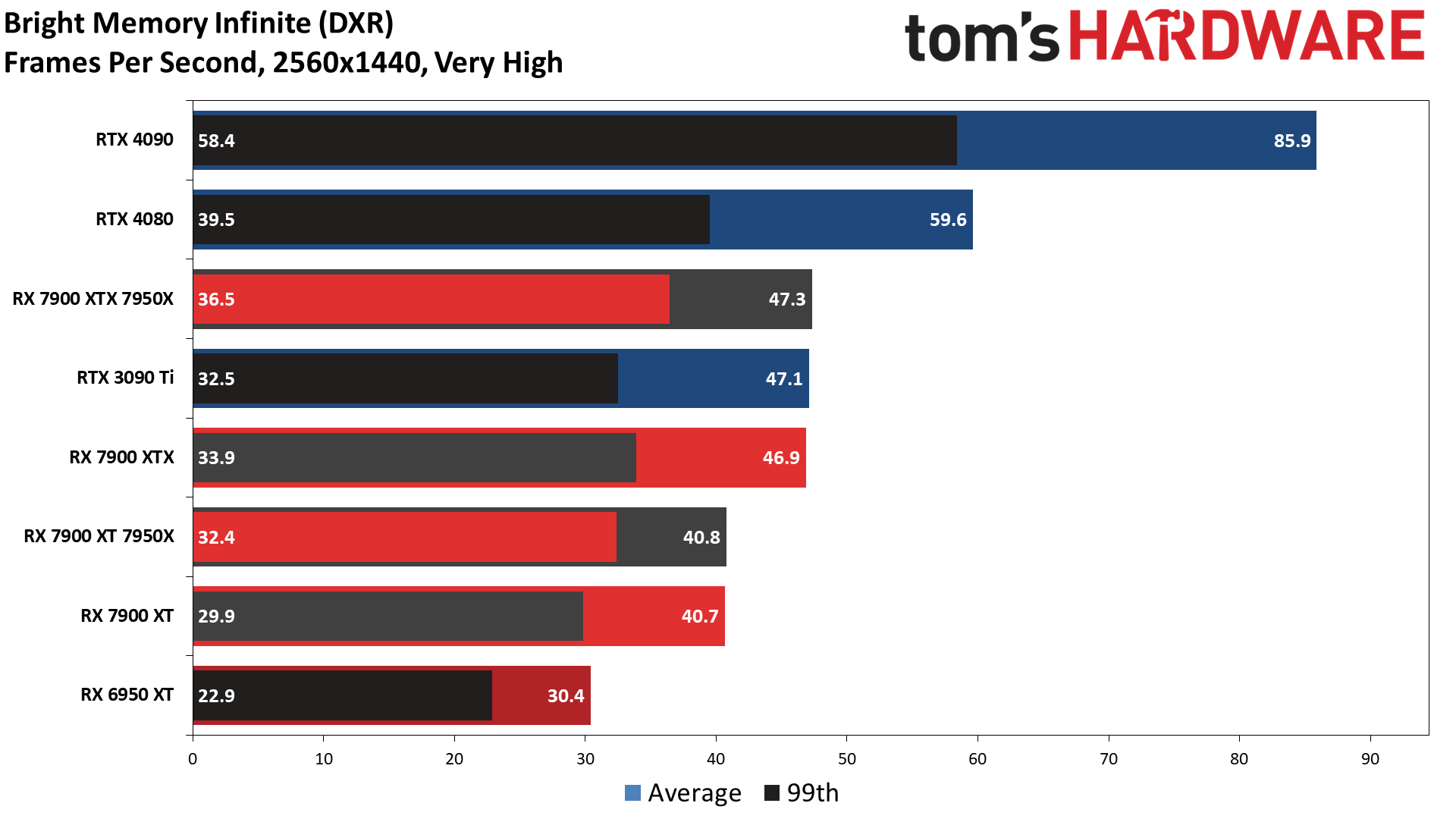
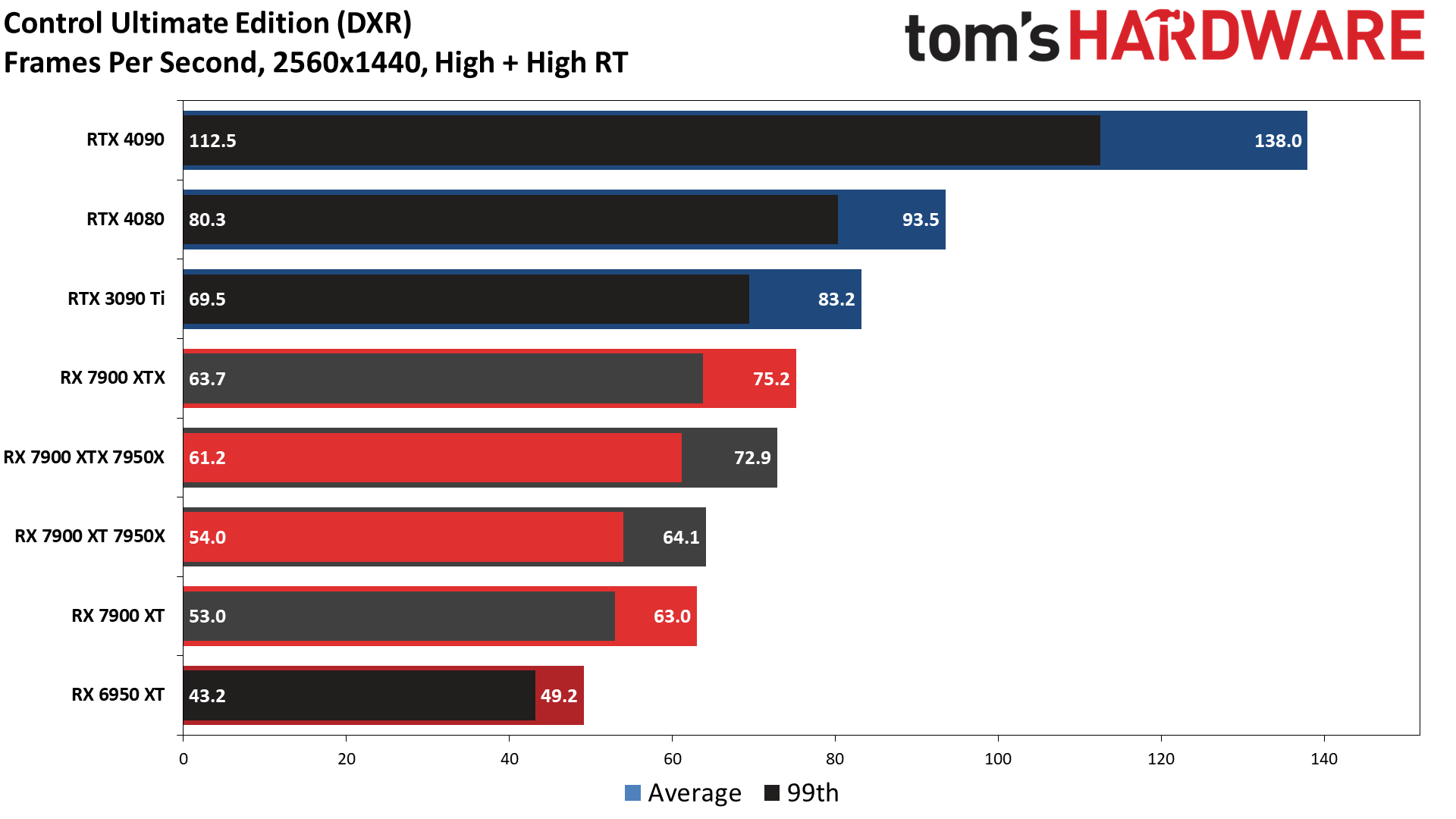
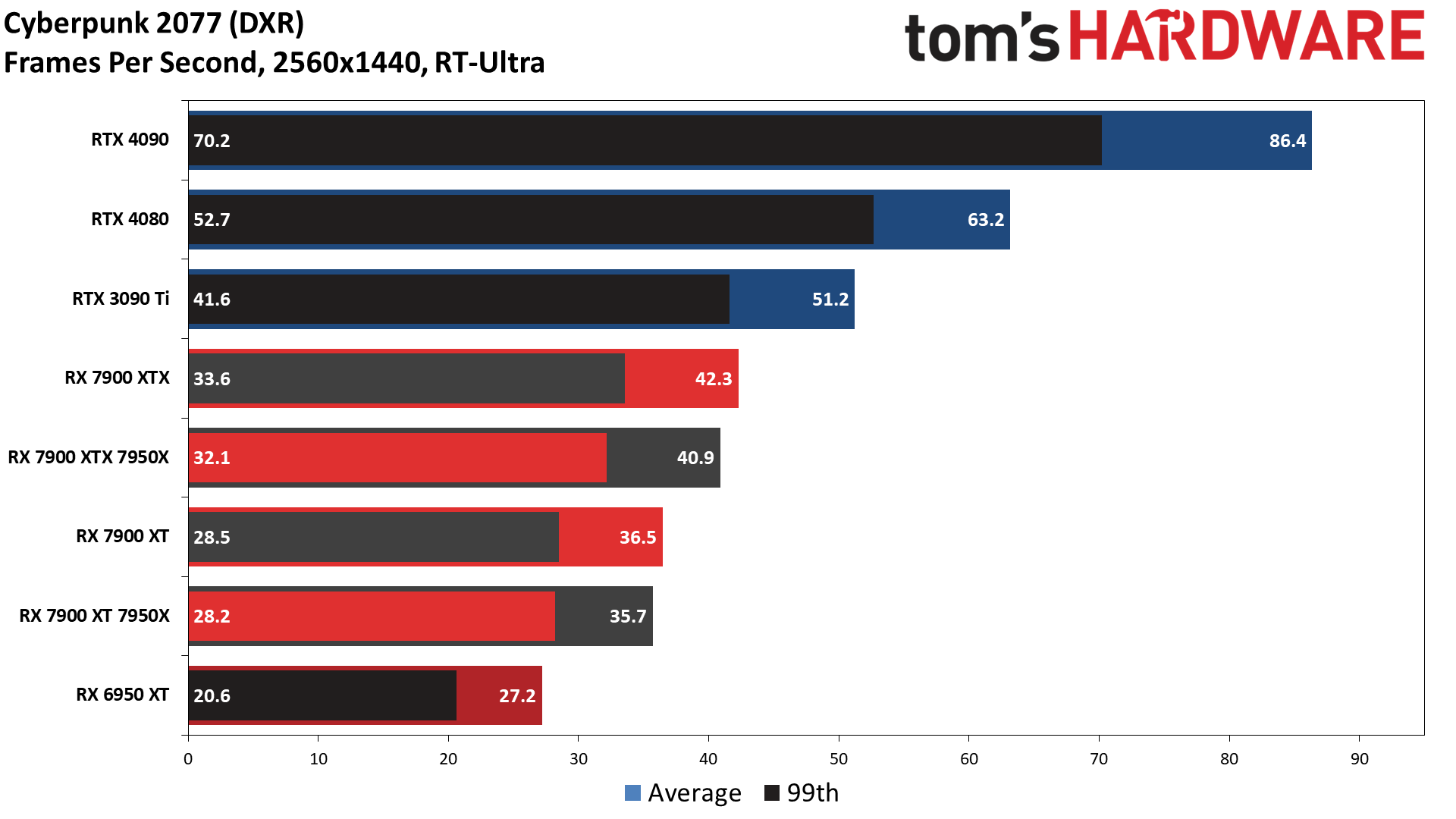
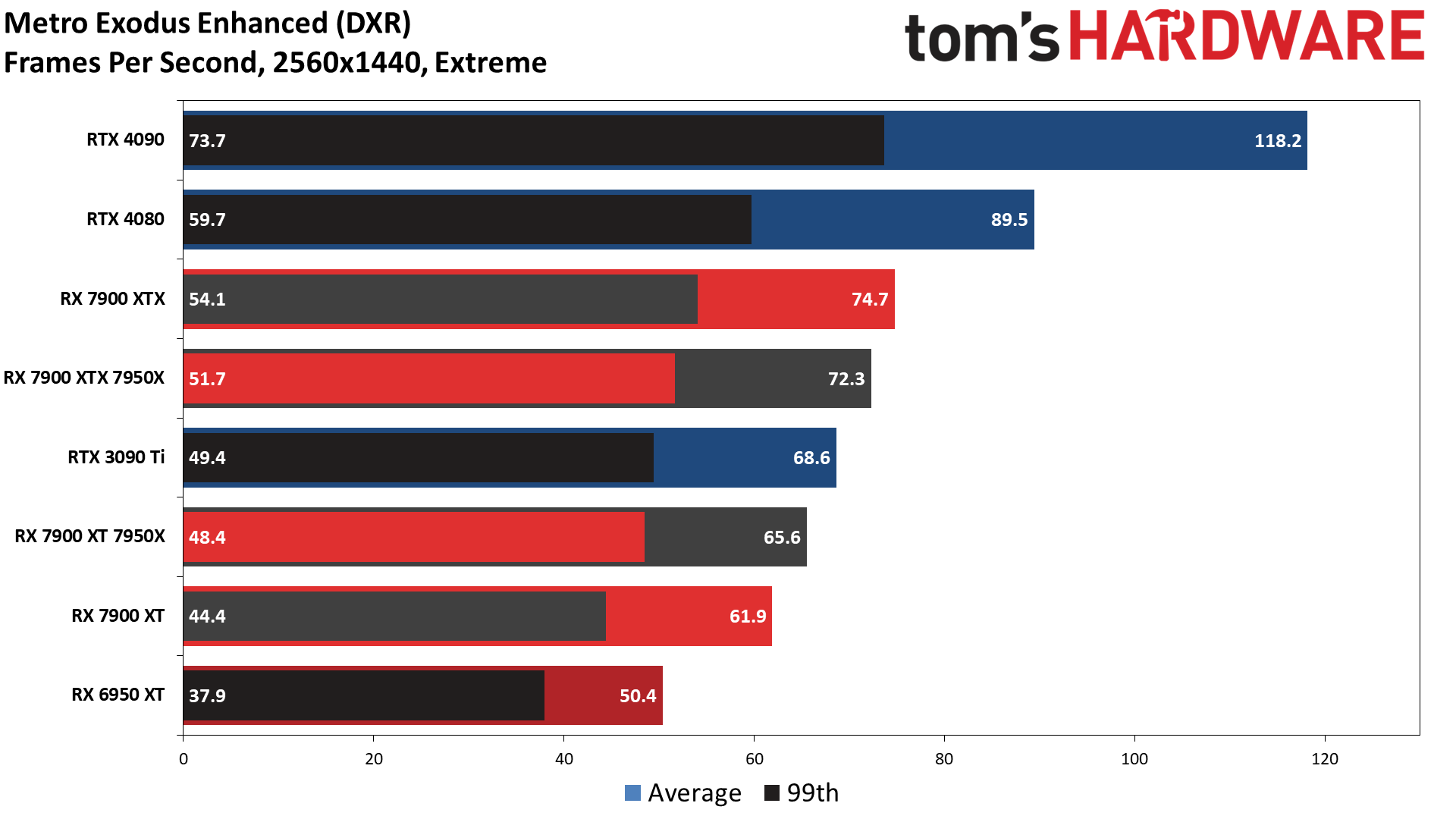
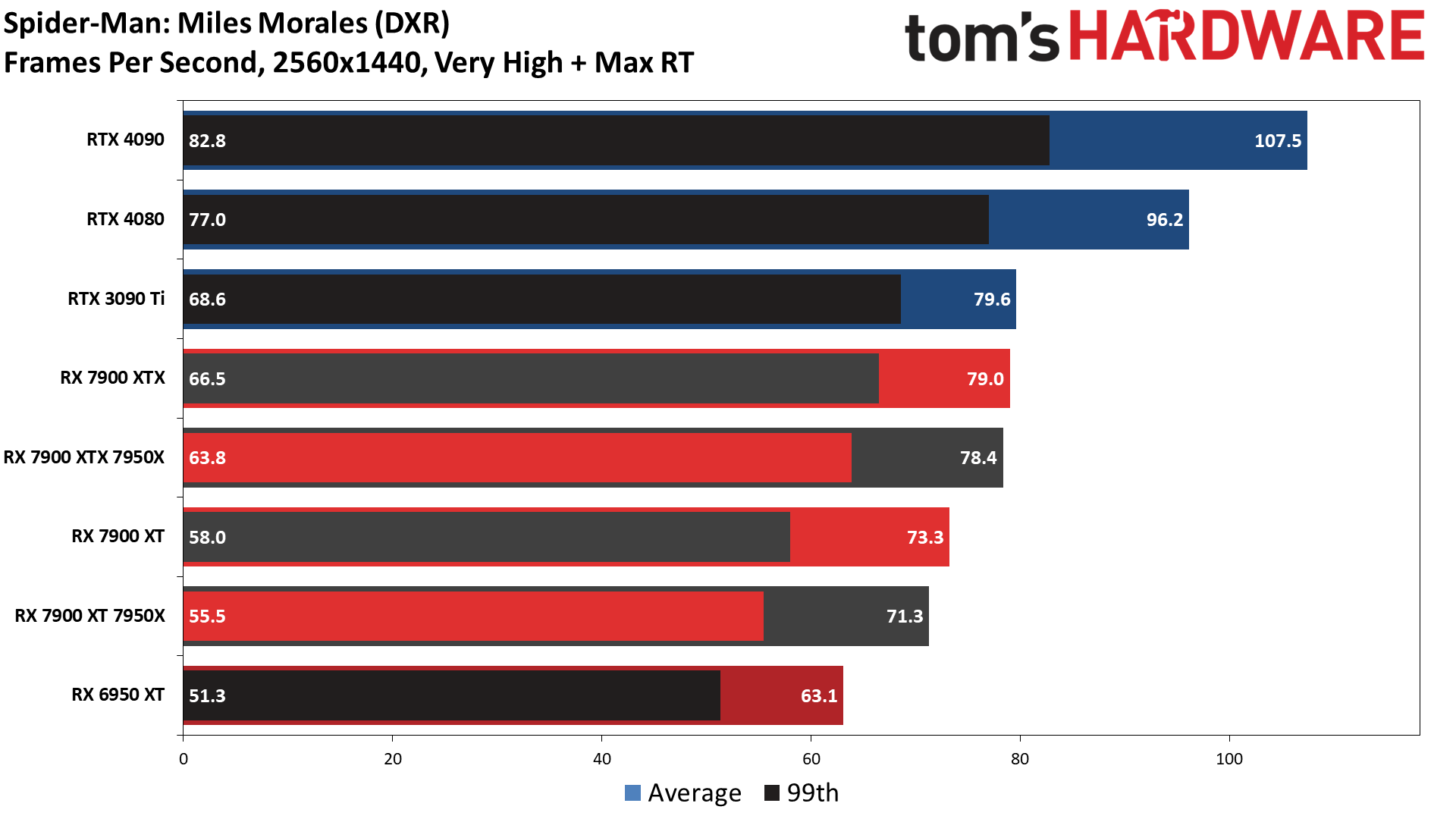
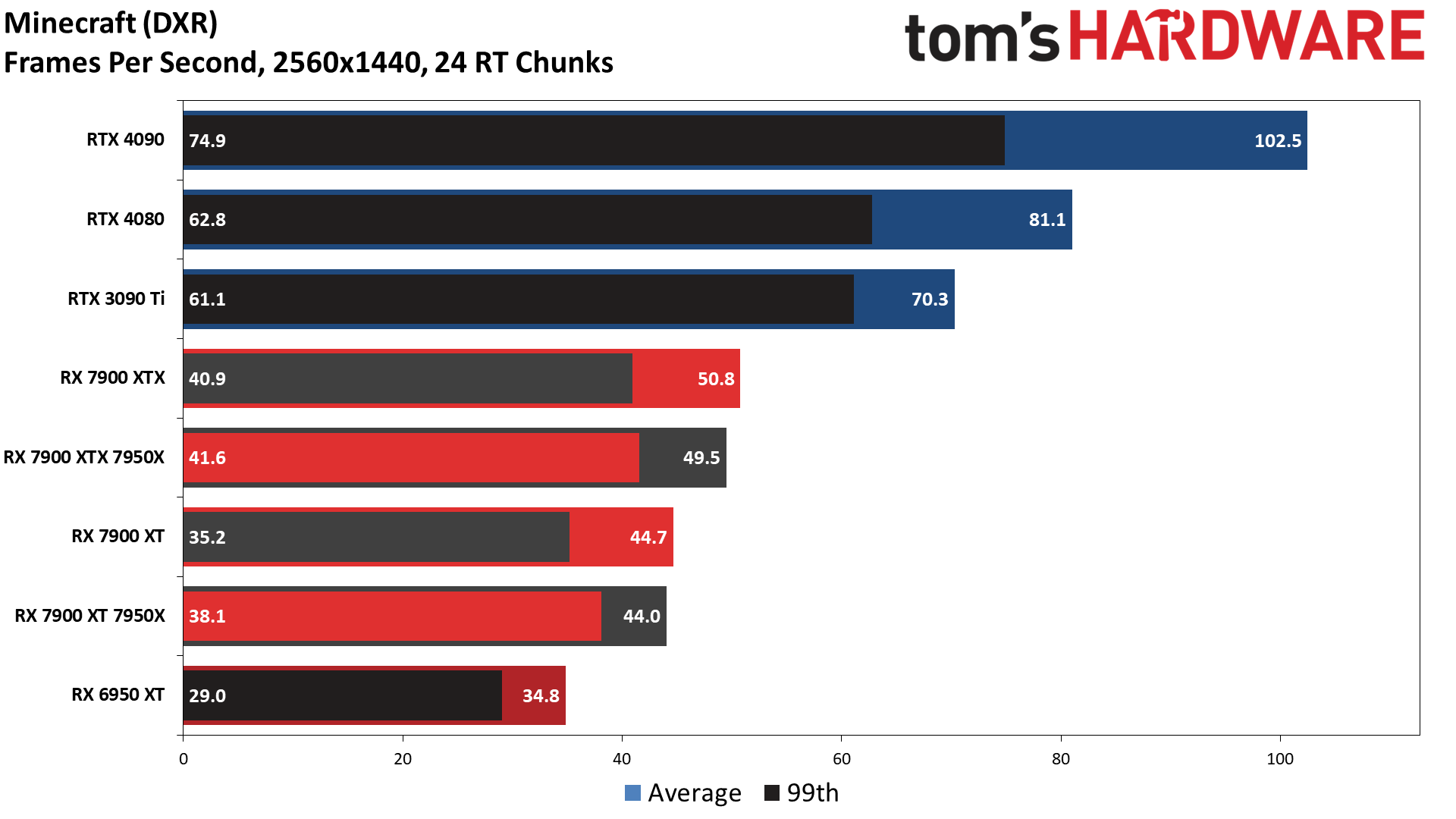
Ray tracing is still almost entirely GPU limited, so the margins don't change too much between the various GPUs. The good news is that while 4K ray tracing may have been questionable, 1440p ray tracing is definitely in reach. The 7900 XTX averaged 60 fps across our test suite, and the 7900 XT put up just over 50 fps. Upscaling would still help, but most of the games are at least playable at 1440p with ray tracing.
The RTX 4080 still puts up 33% better performance overall, and the gap can grow to 50% or even 60% in some games (Minecraft and Cyberpunk 2077). AMD's new halo part, the 7900 XTX, can nearly catch Nvidia's previous generation leader, the RTX 3090 Ti, but that still puts AMD a generation behind on ray tracing performance.
- MORE: Best Graphics Cards
- MORE: GPU Benchmarks and Hierarchy
- MORE: All Graphics Content
Get Tom's Hardware's best news and in-depth reviews, straight to your inbox.
Current page: Radeon RX 7900: 1440p Gaming Performance
Prev Page Radeon RX 7900: 4K Gaming Performance Next Page Radeon RX 7900: 1080p Gaming Performance
Jarred Walton is a senior editor at Tom's Hardware focusing on everything GPU. He has been working as a tech journalist since 2004, writing for AnandTech, Maximum PC, and PC Gamer. From the first S3 Virge '3D decelerators' to today's GPUs, Jarred keeps up with all the latest graphics trends and is the one to ask about game performance.
-
-Fran- Thanks for the review!Reply
I'm reading it now, but I've watched numbers in other places. My initial reaction is lukewarm* TBH. I expected a bit more, but they're not terrible either. They did fall short of AMD's promise though. They indeed oversell the capabilities on raster, but were pretty on point for RT increases.
Still, this card better have a "fine wine" effect down the line and the MSRP may just be well justified. This being said, it is still too expensive. for what it is.
Regards. -
spongiemaster ReplyThat's probably because this is the most competitive AMD has been in the consumer graphics market in quite some time.
Not sure how this was determined, but I would argue this is a step backwards in almost every situation from the 6000 series. Also, it should be pointed out that there is something going on with the power consumption of the 7000 series in non-gaming situations that will affect many users. Looks like the memory isn't down clocking or something.
-
JarredWaltonGPU Reply
I don't do a ton of power testing scenarios, so I'd have to look into that more... and I really need to go sleep. As for the "being competitive," AMD is pretty much on par with Nvidia's best in rasterization (similar to 6000-series), and it's at least narrowed the gap in ray tracing. Or maybe that's just my perception? Anyway, since basically Pascal, it's felt like AMD GPUs have been very behind Nvidia. Nvidia offers more performance and more features, at an admittedly higher price.spongiemaster said:Not sure how this was determined, but I would argue this is a step backwards in almost every situation from the 6000 series. Also, it should be pointed out that there is something going on with the power consumption of the 7000 series in non-gaming situations that will affect many users. Looks like the memory isn't down clocking or something. -
Colif Steve appears to have recorded a 750watt transient on the xtx which makes me sit back and wonder what PSU you need. though I am not sure if that is peak system power or just the gpu itself.Reply -
Elusive Ruse A bit of a cynical Pros/Cons section, no mention of XTX being a much better value over 4080 which is its direct competition?Reply
Performance falls within expected margins (reasonable expectations, not that of crazed fanboys). Beating 4080 in rasterization and falling short in RT and professional uses. I don't quite care for RT but the performance gap in Blender e.g. is still eyepopping. I have heard of Blender 3.5 offering big improvements, yet that's not the current reality of things. I also doubt this will be a better story for RNDA 3 in Maya (Arnold) either. -
shADy81 I assume the 750 W transient GN recorded is for the full system? TPU are showing 455W spike for the XTX and 412 for the XT, lower than 6900 and 6800 by quite some way on their charts.Reply
They also downgraded their PSU recommendation to 650 W for both cards. Was 1000W on the 6900. I think I'd feel a bit close on 650 W even allowing for a good quality unit being able to supply more than rated for short times. 650 would surely be way to close for a 13900K system, what do they know that I dont? -
zecoeco Replyspongiemaster said:Not sure how this was determined, but I would argue this is a step backwards in almost every situation from the 6000 series. Also, it should be pointed out that there is something going on with the power consumption of the 7000 series in non-gaming situations that will affect many users. Looks like the memory isn't down clocking or something.
This is actually a bug that was already reported to AMD and they're already working on a fix. -
zecoeco "Chiplets don't actually improve performance (and may hurt it)"Reply
How on earth is this even a con? who said chiplets are for performance? chiplets are for cost saving.
But what did y'all expect ? You just can't complain for this price point.. there you go, chiplets saved you $200 bucks + gave you 24GB of VRAM as bonus (versus 16GB on 4080)
It is meant for GAMING so don't expect productivity performance, for many reasons including nvidia's cuda cores that has every major software optimized for it.
RDNA is going the right direction with chiplets.. in an industry of increasing costs year after year.
Chiplet design is a solution, and not a new groundbreaking feature that's meant to boost performance.
Sadly, instead of working on the problem, nvidia decided to give excuses such as "Moore's law is dead". -
salgado18 ReplyBut for under a grand, right now the RX 7900 XTX delivers plenty to like and at least keeps pace with the more expensive RTX 4080. All you have to do is lose a good sized chunk of ray tracing performance, and hope that FSR2 can continue catching up to DLSS.
That, I believe, is the reason AMD won't increase too much their market share in this generation. Yes, rasterization is comparable, so are power, memory, price and even upscaling performance/quality. But it is a bad card for raytracing, or at least that's the message, and between a full card and a crippled card, people will prefer the fully featured one. I know designing GPUs is a monstrously complex task, but they really needed to up their RT performance by at least 3x to be competitive. Now they will keep being "bang-for-buck", which is nice, but never "the best".
Edit: by some rough calcs, if the XTX is ~40% faster without RT than the 6950, and ~50% faster with RT, then the generational improvement is ~7%? If so, then that's hardly any improvement at all. Great cards and all that, but I'm very disappointed with the lack of focus on RT. -
btmedic04 Replysalgado18 said:That, I believe, is the reason AMD won't increase too much their market share in this generation. Yes, rasterization is comparable, so are power, memory, price and even upscaling performance/quality. But it is a bad card for raytracing, or at least that's the message, and between a full card and a crippled card, people will prefer the fully featured one. I know designing GPUs is a monstrously complex task, but they really needed to up their RT performance by at least 3x to be competitive. Now they will keep being "bang-for-buck", which is nice, but never "the best".
Edit: by some rough calcs, if the XTX is ~40% faster without RT than the 6950, and ~50% faster with RT, then the generational improvement is ~7%? If so, then that's hardly any improvement at all. Great cards and all that, but I'm very disappointed with the lack of focus on RT.
AMD has a definite physical size advantage though which is something thats applicable to quite a few folks (myself included.) I hear what you are saying, but as a 3090 owner, 3090-like RT performance from the 7900xtx is still quite good for most people.
